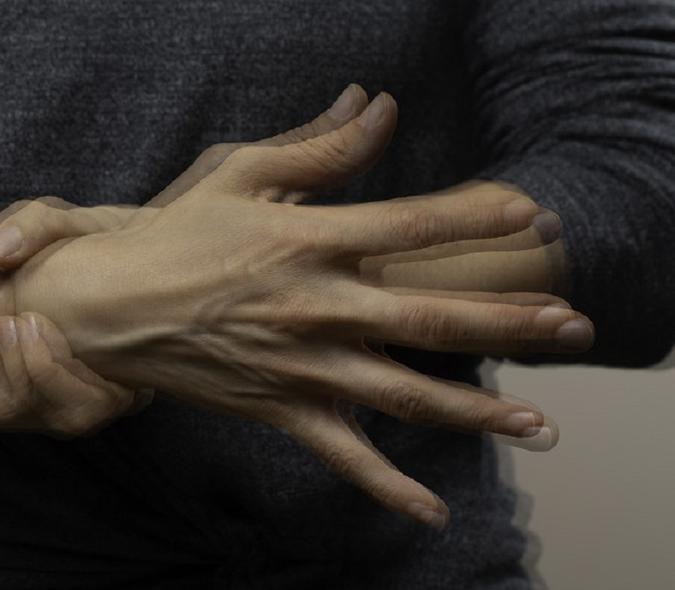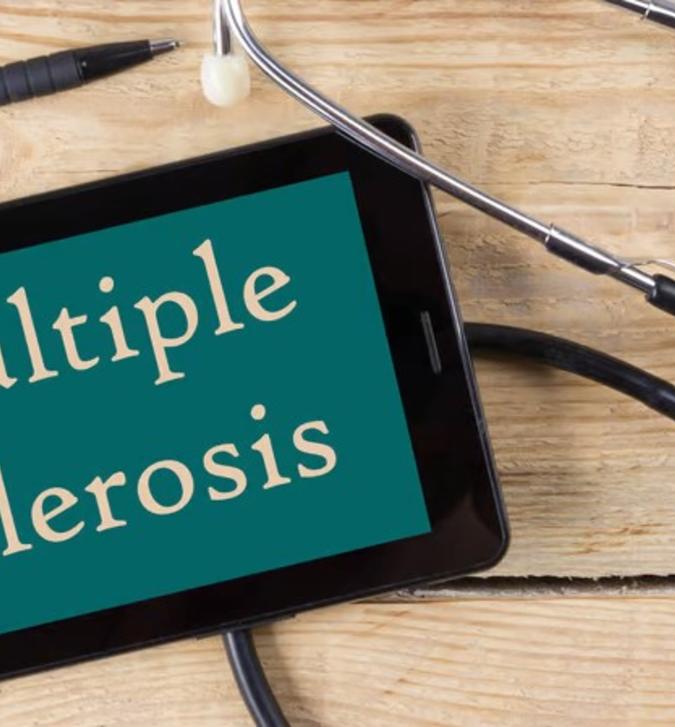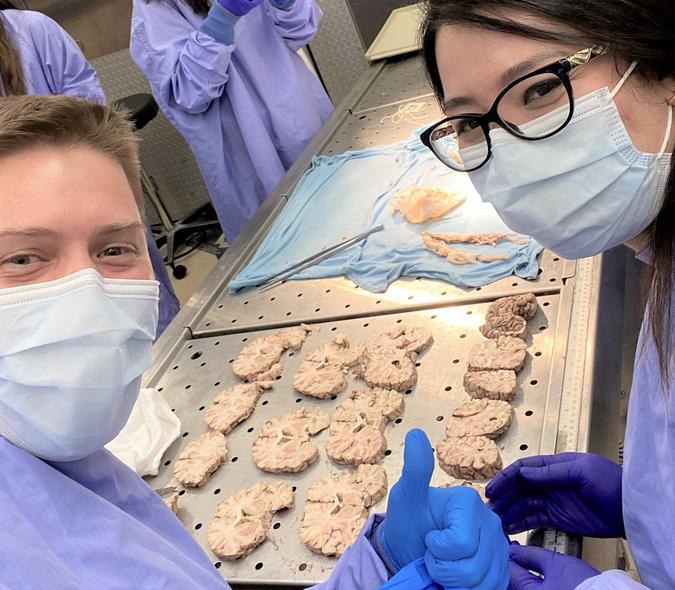
Being a Physician Assistant in a rehab setting is rewarding, challenging
National Physician Assistant (PA) Week is October 6-12 and recognizes the PA profession and its contributions to the nation’s health. To celebrate, we interviewed two of the department’s PAs: Lindsay Barrick, PA, and Elizabeth Wallis, PA, who work in the Acute Rehabilitation Center in Minneapolis, MN. Lindsay and Elizabeth are both graduates of Augsburg University, also in Minneapolis. Lindsay has been with the Rehabilitation Medicine Department for five years; Elizabeth for one year.
What inspired you to become a PA?
Lindsay: I was a nurse in the burn unit at Hennepin Healthcare and inspired by the amazing PAs I worked with.
Elizabeth: I was in the long-term care unit with people who had strokes and other injuries and loved working with that patient population, but my career path was taking me away from direct patient care. I wanted to find a way to advance my career while continuing to work directly with patients. The PA profession was a perfect match for me.
What do you like about being a PA?
Elizabeth: I love working with patients, spending time with them, helping educate both them and their families, and coordinating with various members of the care team. I also enjoy getting to hear people’s stories and helping them navigate what can be a pretty complex healthcare system.
Lindsay: It's a great role for me, I enjoy the patient care, and being a member of a collaborative healthcare team.
What do you like about being a PA in the Rehabilitation Medicine Department?
Lindsay: acute rehab is unique in that patients often haver longer length of stay. We also work with a great multidisciplinary team that includes physiatrists, consultants, therapists, nurses, social worker, and many others. We all partner together to provide optimal patient care.
Elizabeth: I love collaborating with our interdisciplinary team. It was something that was really important to me when I was looking at the PA profession – getting the opportunity to work with all these healthcare professionals and benefitting from their expertise. I think it means we deliver better patient care and help improve their outcomes. We also get to see our patients get better. It’s amazing to watch people come from a long and often complicated hospital course caused by a devastating illness or injury and see them making gains during rehab – to rediscover optimism and look forward to going home. I’m inspired every day by how resilient our patients are and by the progress they make.

What kind of patients do you work with?
Lindsay: it’s a broad patient population … about 30 percent are stroke patients. And because we take patients from the U of M, we have a unique opportunity to work with transplant patients. We also work with complex cardiac patients and patients with neurological issues. What’s been really rewarding over the past two years is the opportunity to take care of post-COVID patients. These patients are often on large amounts of oxygen and get short of breath even attempting to raise their hands over their heads. We get to see many of them walk out of here.
What are some of the challenges you face?
Elizabeth: I’ve only been practicing for two years, so I think one of the challenges is the diversity of the patient population. Many patients have multiple conditions that we didn’t learn about in school, which requires a lot of learning through experience. That’s also what makes being a PA attractive to me. Another challenge is navigating how we work with the interdisciplinary team in ways that take the best advantage of our skills and training so we can capitalize on all our strengths to provide the best care.
Lindsay: more recently, patients' social issues have been challenging for our team. As PAs in acute rehab, being flexible and modifying our role to meet the needs within each team and for each patient you are working with can be challenging.
What advice would you give someone who is considering becoming a PA?
Lindsay: I am still early in my career but feel it continues to evolve. I think the healthcare system is changing and future candidates should be aware of this. I think it's important they recognize the variability of the role in different settings, and take the opportunity to shadow PAs in a variety of specialties and healthcare systems
Elizabeth: I took a nontraditional path to becoming a PA and had another career before I went to school. Having an open mind is helpful because PAs don’t have to fit into a one-size-fits-all mold. It’s also good for PAs to come from a variety of backgrounds. I may not have a strong medical background, but I bring other skills from my previous work that help make me a better provider. I recommend that those interested in becoming a PA shadow different kinds of healthcare professionals to see what a day in their life looks like. There are so many different opportunities to fit your skills and interests as a PA. There is also a lot changing in healthcare right now and I believe that PAs can be part of creating some of the solutions to issues such as access and equity.



